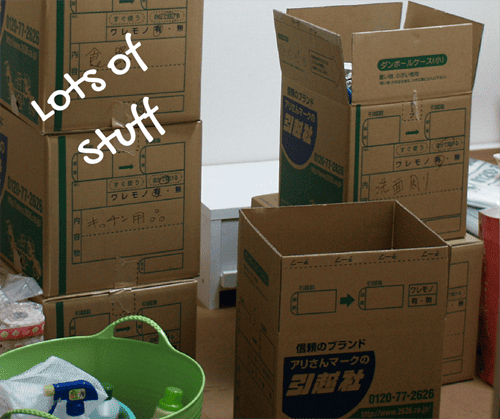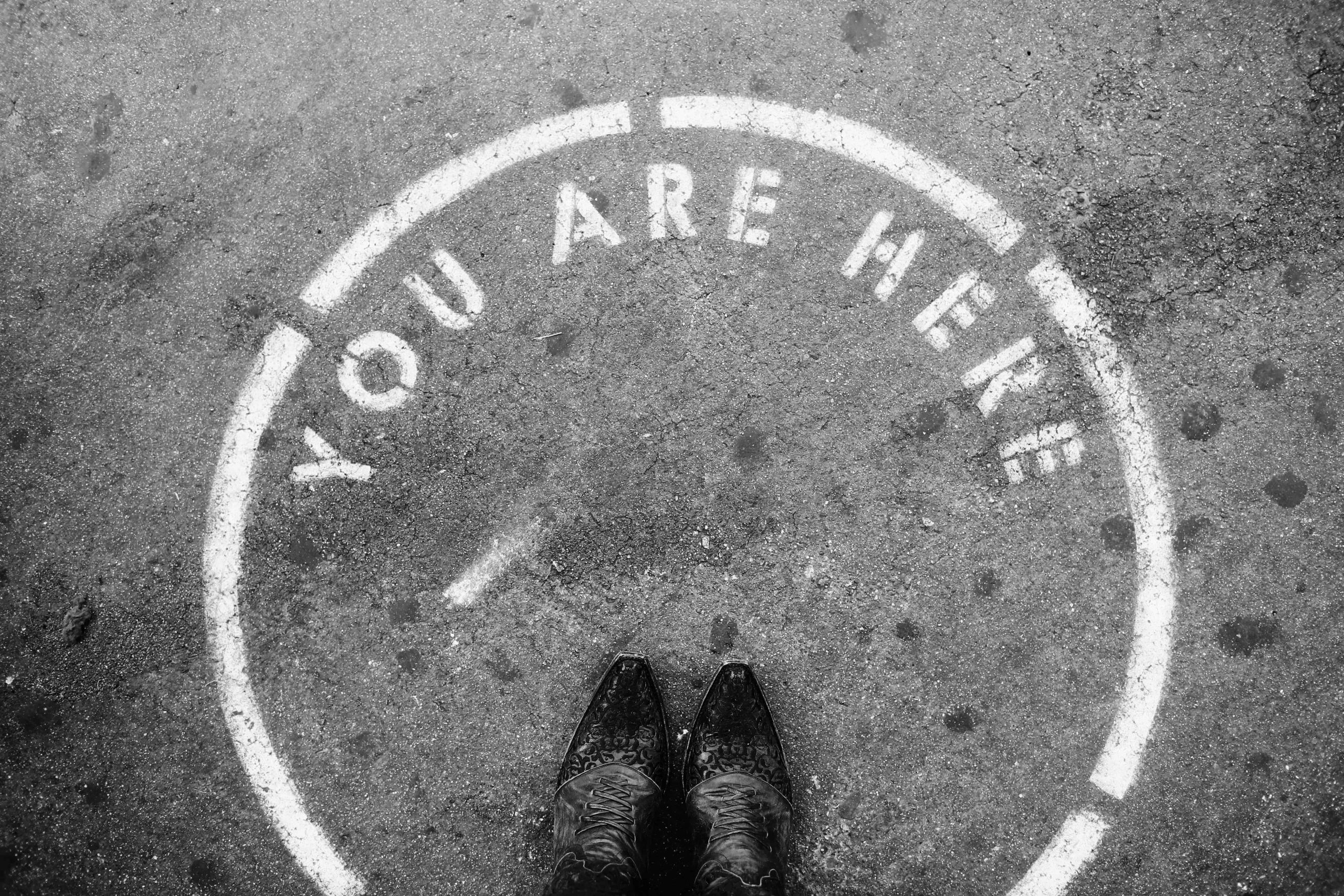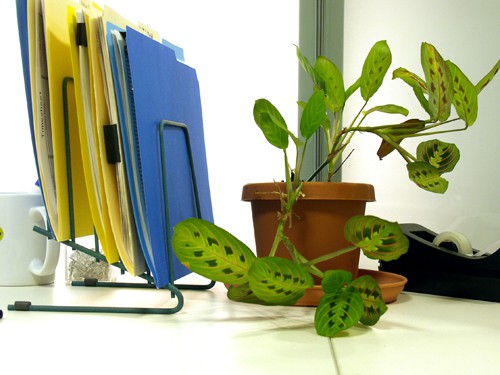
I’ll bet you’ve heard this before: “Less is More”.
And when you’re struggling with stress and anxiety, living with less can be a holistic anxiety management plan.
This post will explore why minimalism is a great worry management plan. We’ll discuss what Minimalism actually is, and we’ll and provide practical tips for incorporating it into your daily life.

What Does It Mean to “Live with less”?
In today’s society, we are constantly bombarded with advertisements urging us to purchase new things. Our social media feeds are filled with promotions for the latest weight loss products and trendy accessories, enticing us to spend our money. While it’s acceptable to spend money on items that serve a purpose, the excessive accumulation of possessions often leads to frustration, a sense of being overwhelmed by clutter and eventually a more anxious and stressful life.
That’s where “living with less” comes in. Better known as Minimalism.
It’s all about living intentionally, only keeping the things that you truly need. It’s a method of managing stress that can lead you to freedom from the endless hustle and bustle of life.
4 Characteristics of Minimalism
There aren’t any strict guidelines for practicing minimalism. Instead, you can define it according to your own preferences. Here are some useful indicators for individuals interested in adopting this lifestyle. They include:
1. Opt for owning less stuff. Having too many possessions can result in distractions. You don’t necessarily have to get rid of everything. Instead, focus on keeping only those items that bring you joy and hold value for you. The remaining items can be sold, donated, or discarded
2. Opt for memorable experiences rather than material possessions. Purposefully investing time with loved ones results in a more fulfilling life compared to the accumulation of material goods. Consider the joy children experience on Christmas morning: you may spend a substantial amount on a trendy toy, only for them to find more pleasure in playing with the cardboard box it came in. They understand the essence of simplicity and its value.
3. Embrace the notion that minimalism is straightforward, yet it is not a walk in the park. It involves decluttering your life by eliminating unnecessary items that no longer hold value or serve a purpose. Identifying what is truly essential can present a challenge for many individuals.
4. Embrace a more relaxed lifestyle. Minimalists, by prioritizing only what is necessary, are able to avoid the necessity of working excessive hours to cover their expenses. They are not bound to the frantic pace that many individuals adhere to. Instead, they can detach themselves from the chaos and opt for a more leisurely approach.
Understanding that minimalism is a shift in mindset is important. It’s not just about owning less stuff but also about changing our mindset and making choices that positively affect our families and our lives.

Tips for the newbie Minimalist
When you decide to embrace minimalism, it’s important to have a starting point in mind. Although the outcome may seem idyllic, the journey towards it can feel daunting. Should you begin decluttering immediately? Do you have to completely halt your shopping habits? Ensure the effectiveness of your endeavors by approaching the process with mindful consideration and a genuine desire to acquire knowledge and evolve throughout the journey.
Everyone should have an idea of where to begin. So, here are five suggestions to help you embark on your minimalism journey:
1. Figure Out Your Motivation for Embracing Minimalism: Embracing a minimalist lifestyle may seem straightforward, but it’s not necessarily effortless. On a day-to-day basis, you’ll encounter advertisements urging you to acquire more possessions or loved ones attempting to sway your decision. During such moments, it’s beneficial to have a clear understanding of why you chose this way of life. This motivation can serve as a source of strength when faced with difficulties.
2. Think Twice Before Making a Purchase: Embracing a minimalist lifestyle involves decluttering and keeping only what holds significance. While occasional purchases are necessary, it’s important to pause and reflect before buying something. Ask yourself how it aligns with your needs and consider its durability. Setting a rule to delay purchases for a specified period can help you overcome moments of temptation.
3. Discover Your Spending Triggers: Are you often tempted to make unnecessary purchases after scrolling through your social media feed? Identifying the factors that lead you to spend money on things you don’t really need provides you with the opportunity to take proactive measures. Consider taking a break from social media or opting out of promotional emails from your preferred stores.
4. Start by decluttering slowly but steadily: Pick a room, preferably the one that inspired you to embrace minimalist living, and begin sorting your belongings into categories like keep, sell, donate, or trash. Once you have finished with one room, move on to the next. It’s important to avoid rushing through this process in a single weekend, as you may end up buying back items that you should have kept in the first place.
5. Everything in its place: Create designated spaces for all your belongings by utilizing plastic bins or baskets. The objective is to assign a specific place for each item, minimizing visual disarray and promoting a serene living environment.

6 Ways to Live a More Minimalist Lifestyle
If you’re ready to transform your life and adopt a minimalist lifestyle, here are six helpful tips to ensure your journey is a success:
1. Establish Your Personal Guidelines: Minimalism can be interpreted differently by each individual. It is important for you to determine your own vision of a minimalist lifestyle. Does it entail owning a specific quantity of possessions? Or does it involve having a clutter-free living space?
2. “Hey! Get a Room!”: Pick a single room or area to concentrate on. It can be overwhelming to tackle the entire house all at once, so it’s best to focus on the simplest room, such as a spare bedroom.
3. Use it or Lose It: When organizing your home, prioritize items that hold personal meaning or serve a practical purpose. If you’re unsure about something, store it away in a container for two months and evaluate whether you find it necessary or useful during that time. If not, consider letting it go.
4. Quality over Quantity: When shopping, it is important to prioritize quality over price. While higher quality items may come with a higher price tag, constantly replacing cheaper items can end up being more costly in the long run. Instead of focusing solely on the price, opt for items that are of good quality. This way, you will acquire things that you genuinely enjoy and that will last longer.
5. Make it routine: One way to maintain a clean and organized space is to incorporate a daily tidying routine. It’s not just about decluttering, but also about consistently maintaining a neat appearance. Different areas may require daily, weekly, or seasonal attention in order to keep them in order.
6. Keep Practicing: Life goes on even after decluttering. You’ll have to consistently decide whether to keep or let go of certain items. By establishing guidelines for what enters your home or when it’s time to part with something, you can maintain a peaceful environment in your house or office.

Less Stress? Yes, but more, MUCH more…
Minimalism is not just about decluttering your physical space; it’s a mindset and a lifestyle that can bring numerous benefits and enhance your overall well-being. By embracing minimalism, individuals can simplify their lives, reduce stress, and find greater fulfillment. In addition to being a great anxiety management plan, here are some of the awesome benefits of being a minimalist:
1. Clarity and Focus: A minimalist lifestyle encourages you to prioritize what truly matters to you. By eliminating unnecessary possessions, commitments, and distractions, you create space for clarity and focus. You gain a better understanding of your goals, values, and passions, allowing you to direct your time and energy towards what brings you true happiness and fulfillment.
2. Reduced Stress and Anxiety: Yes, this post is focused on reducing stress and anxiety so you’ve heard this before. But it bears repeating. Our modern lives are often filled with clutter, both physical and mental. This constant bombardment of stimuli can lead to stress and overwhelm. Adopting a minimalist approach helps you simplify your surroundings, making it easier to maintain an organized and tidy living space. With fewer possessions to manage and fewer choices to make, you’ll experience a remarkable reduction in anxiety, stress levels and a greater sense of calmness.
3. Financial Freedom: Minimalism encourages mindful spending and intentional consumption. By questioning your purchases and only acquiring what you genuinely need or truly value, you can save a significant amount of money. This newfound financial freedom gives you the flexibility to pursue experiences, invest in personal growth, and build a more secure future, rather than being burdened by excessive material possessions.
4. Enhanced Relationships: When you prioritize relationships over material possessions, you strengthen your connections with others. Minimalism prompts you to invest time and energy into fostering meaningful relationships, creating deeper connections, and engaging in quality interactions. With fewer distractions, you can be fully present and engaged in your interactions, leading to more fulfilling and enriching relationships.
5. Environmental Consciousness: Embracing minimalism aligns with a more sustainable lifestyle. By consuming less and opting for quality over quantity, you reduce your ecological footprint. You contribute to minimizing waste and resource depletion while promoting a more environmentally conscious way of living. Choosing experiences over material possessions also reduces the demand for unnecessary production and consumption.
6. Increased Productivity: A minimalist lifestyle promotes productivity and efficiency. With fewer distractions and a decluttered environment, you can focus on the tasks that truly matter. Minimalism encourages you to eliminate non-essential commitments and prioritize your time effectively, ensuring that you allocate it towards activities that align with your goals and values.
7. Mental and Emotional Well-being: Minimalism has a positive impact on your mental and emotional well-being. By simplifying your life, you reduce mental clutter and create space for peace and contentment. Letting go of attachments to material possessions can also free you from the constant pursuit of external validation, allowing you to cultivate self-acceptance and a stronger sense of self-worth.

Some rather radical ideas for living with less
Ok, so now that we’ve come to the end of this post I would be remiss if I didn’t discuss some of the more – shall we say – radical ideas and strategies about living with less (i.e. Minimalism)
Bear with me now, and keep an open mind. Some of these are downright scary. But, if you’re really serious about this new lifestyle, they might not seem as crazy as they sound at first.
Ready? ok here we go…
1. Get a Dumb Phone. There are a few steps you can take to minimize distractions and decrease stress levels caused by constant smartphone notifications. Firstly, consider switching to a simple cell phone that allows only for calls. This will not only be more budget-friendly but also ensure that you can focus on what’s important without constant interruptions.
2. Can’t bring yourself to ditch your smartphone? Then get rid of social media. Even if you still have a smartphone, delete all those social media apps. It might seem extreme, right? Going through social media takes up a lot of time that could be spent with loved ones. Instead, limit yourself to browsing social media on your laptop during specific times of the day and gain back some precious time.
3. Cut up the credit cards. If you want to avoid being enslaved to credit card companies, it’s important to pay off your credit card debt. Not paying your balance in full each month can become burdensome. To prevent overspending, only use your credit cards for purchases within your means, ensuring you can pay them off when the bill arrives.
4. Cut the cords. In other words, cut off your cable subscription. A lot of people shell out more than $100 every month for countless channels that they hardly ever watch. But why waste your money on that when you can get free over-the-air TV stations and super affordable streaming services? By doing this, you can take the money you save and put it towards paying off your credit card debt.
Keep in mind that you have the freedom to live a simple life. There’s no obligation to follow a complex and stressful lifestyle just because those around you do. You can consciously choose a different path that resonates with your personal values.

Conclusion
Minimalism and Living with Less is a great anxiety management plan and many people dream of living a simpler life. Few achieve it. The idea of leaving behind possessions and finding nirvana is tempting, but it is not an easy task. Yet, the benefits are immense. You can get your health back. You can get your family back. Your stress and anxiety levels will lower. All of these add up to a life lived to its fullest. Who doesn’t want that?
More From This Category
Living in the Present Moment: Mindful Methods of Managing Stress
Stress can be caused by a variety of factors such as work, relationships, financial issues, and health problems. However, one of the many effective methods for managing stress is by living in the present moment.This post will explore why living in the present moment...
7 Ways to Manage Your Stress at Work
How to deal with stress at work. Stress is terrible. It messes up your brain, creates anxiety, can take away your self-control, and even make you sick. And quite a lot of our stress can come from our work environment. You might have a perfect job and boss, but still...


0 Comments